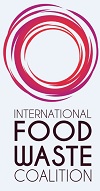Business brief: Food, waste and value: Building a coalition for change
|
World food price volatility, growing populations, higher purchasing power among more people, with more arable land but water and food stocks in decline: no wonder food is often dubbed the “new oil”.
Yet in wealthier countries, where food has become a standard commodity throughout the supply chain, consumers are experiencing low food value, while food waste pervades every step of the value chain, within every food industry and sector.
This is neither acceptable nor sustainable. Food is not just another item to be jostled by cost and price reductions on global markets.
The International Food Waste Coalition has been singularly focused on the global issue of food waste since its creation in April 2015. Our work on waste has both increased our understanding of where efficiencies can be found and confirmed the value that collaborative contributions can make to securing the future of our food. Thanks to the member companies’ commitment to reducing waste, third-party research and dedicated work, our coalition has proven that real, scalable and impactful waste reduction can only come from systemic change involving collective action across the value chain.
For example, the coalition’s first programme, the “SKOOL” pilot project, sought to tackle food waste across the value chain in schools where Sodexo operates, engaging children, kitchen and cafeteria staff among others. We developed awareness-raising tools (“Do Good: Save Food!”) in partnership with the UN Food and Agriculture Organization, and started as a pilot project in schools in France, Italy and the UK. The six-month programme directly involved close to 1,400 students from ages 5 to 18 years old, with another 6,000 people indirectly involved. An average 12% global food waste reduction was achieved by the sites: almost two tonnes of food waste avoided. The pilot programme is now being extended and is available for rollout within Europe.
The coalition is committed to finding new, innovative and sustainable ways to build value chain systems whereby our food resources are enhanced and our business efforts are not lost. This requires a transformational change in our thinking, our supply management practices and our relationships. It means rethinking how to capture the value created in the product or service each step of way, including investments and actions to minimise waste and improve environmental outcomes.
Without value transfer between supplier and customer (a critical issue at contract negotiations) and collectively throughout the chain, food commoditisation will continue to contribute to increasing food waste. Indeed, what is not valued is most often wasted. With soft global growth and ongoing demands to control costs as a way of generating profit, sourcing and procurement are fundamentally important to optimising value chains. The opportunity to make an impact is considerable.
We know that forging new types of relationships with partners across the value chain will require new levels of collaboration. It will be at the heart of successful customer-supplier-contractor relationship management in the future. Suppliers, buyers and customers will need to re-invent contractual elements that bring pragmatic solutions to guarantee that value is added and recognised, instead of being lost.
Digital technology presents opportunities to rethink key business processes and new ways to enhance collaboration. Leveraging relationships to better co-ordinate processes, in a more organised and informed way, can also help contribute to resource efficiency. Advanced predictive technologies that model future scenarios will provide greater visibility to optimise value chain effectiveness, as well as a greater understanding of the drivers that contribute to inefficiencies and waste.
Consumer awareness and education remain an important determinant, with an ever increasing demand by customers for knowledge about the origin of products, how food has been prepared and processed, and the value integrated from local producer to plate.
The coalition is dedicated to cutting through the challenges of re-inventing collaborative relationships through engagement from our partners across different functions and dimensions of the value chain.
It is a challenging and ambitious project that, if successful, can become a model for how 21st century collaborative partnerships should operate.
*Founding members are Ardo, McCain, Pepsico, SCA, Sodexo Group, Unilever Food Solutions, WWF, and partners FAO and LeanPath
Visit http://internationalfoodwastecoalition.org and www.sodexo.com
References
OECD/FAO/UNCDF (2016), Adopting a Territorial Approach to Food Security and Nutrition Policy, OECD Publishing, Paris. DOI: http://dx.doi.org/10.1787/9789264257108-en
OECD (2016), Alternative Futures for Global Food and Agriculture, OECD Publishing, Paris. DOI: http://dx.doi.org/10.1787/9789264247826-en
Sponsored by
OECD work on agriculture and fisheries OECD work on food security and nutrition |
Damien Verdier © OECD Yearbook 2017 |
Related Documents



